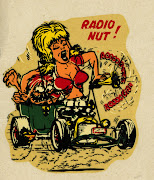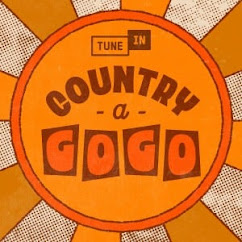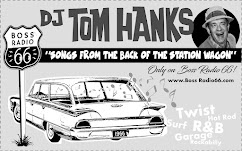The jist is that CJD made a LOT of records. He was the John Lee Hooker of barrelhouse piano (in more ways than one, since some of his best recordings are just him, his piano and his stomp). He was always happy to reinvent one or more of his Dupree specials for whoever might be willing to give him some bread. Like John Lee, he got thrown in with an awful lot of younger, white blues players in the 60s, with similar mixed results. But he made records both rockin' and righteous all his life, he tells great autobiographical stories in a lot of his songs, and he casts a shadow over the history of enough Ichiban-oriented interests to keep us amused for a month. Plus he's hilarious.
Jack Dupree was born in New Orleans in 1909 or 1910. Like Louis Armstrong, he claimed to have been born on the 4th of July, and like Armstrong, that claim has proven to be inaccurate. Also like Louis Armstrong, he was raised in New Orleans' Home for Colored Waifs, after he lost his parents in a house or store fire that may or may not have been set by the Ku Klux Klan. Jack talks about this on his song "The Death of Louis Armstrong" and makes reference to the fire in a song called .
Jack taught himself to play piano after the orphanage acquired one from the Salvation Army, and apprenticed in the juke joints with Willie Hall, also known as Drive 'Em Down, who apparently taught him one of his signature numbers, "Junker's Blues". He reminisces about Drive 'Em Down at the start of the song "Workhouse Blues", from an early 60s session for Storyville, recorded in Denmark.
In the 30s he split New Orleans for Detroit, where he became a boxer. Here he earned, either honorably or ironically, the nickname "Champion", depending on whose stories you believe. One imagines he got sick of hitting something that hit back, so he moved to Chicago at the start of the 40s and started playing the piano again.
Listen to "The Death of Louis Armstrong"
Listen to "Workhouse Blues (Talkin' Bout Drive 'Em Down)"
sorry about so many slow songs today - we'll get to boogie plenty by month's end . . .
Relative to his large body of work and the colorfulness of his life, there does not seem to be a lot of information about Champion Jack Dupree out there. He is not the subject of any biographies, and he doesn't get a lot of mention in the blues history books I've checked. Francis Davis's History of the Blues offers a useful if slightly condescending three page biographical overview.
This blog post has a great interview with CJD and will be returned to frequently this month.
Big thanks to the exhaustive Champion Jack Dupree discography here. Pretty much my only tether to reality this month.





















